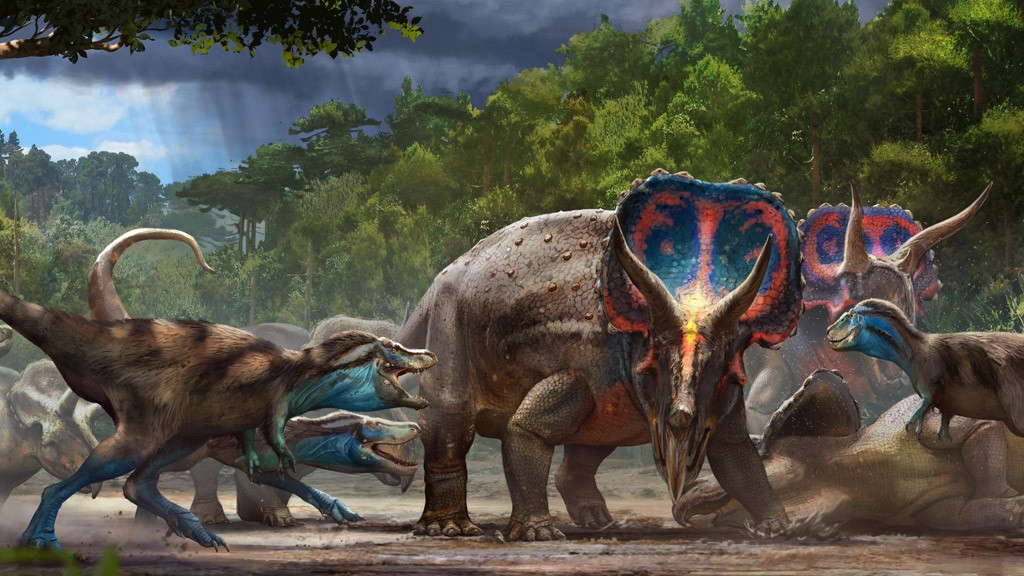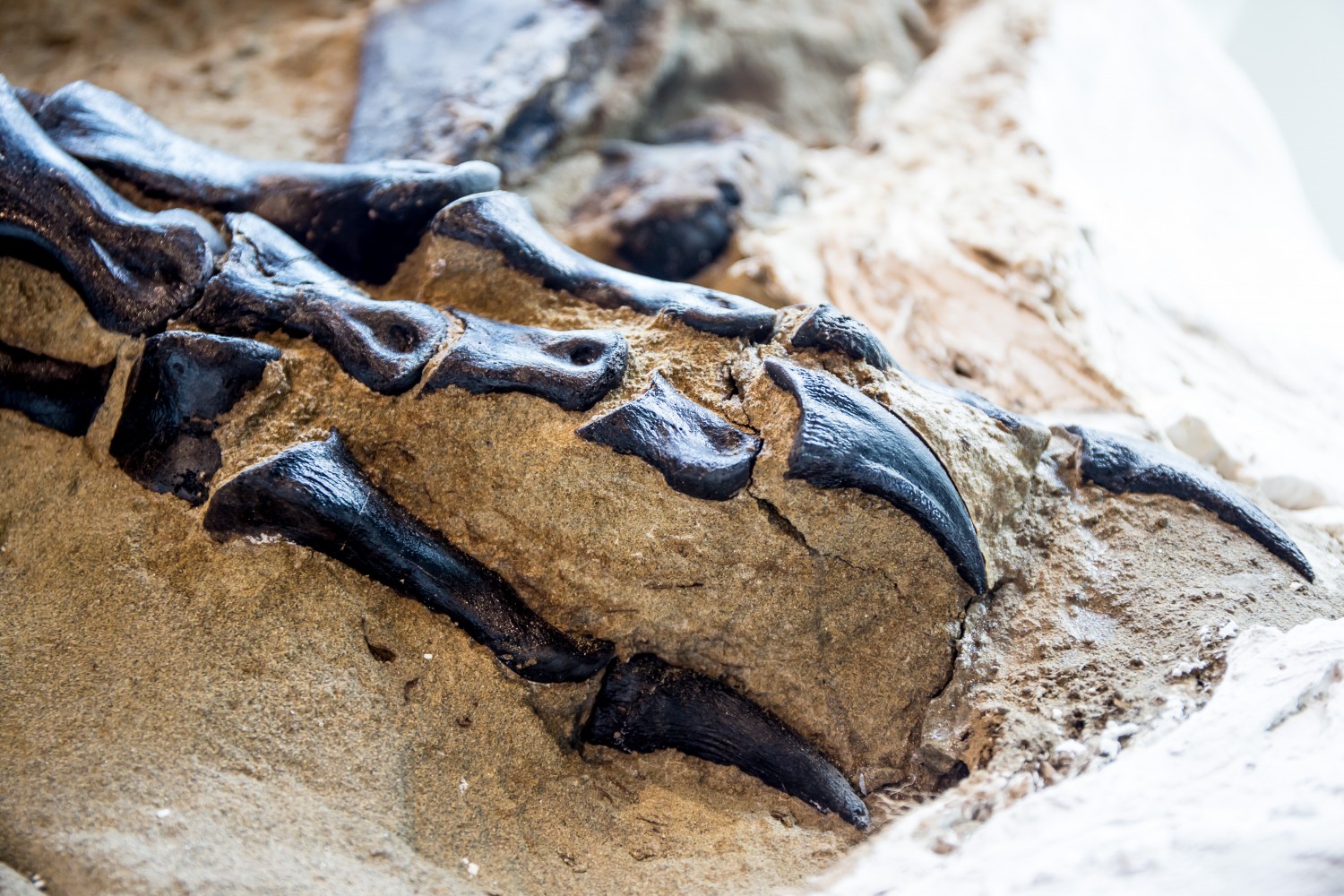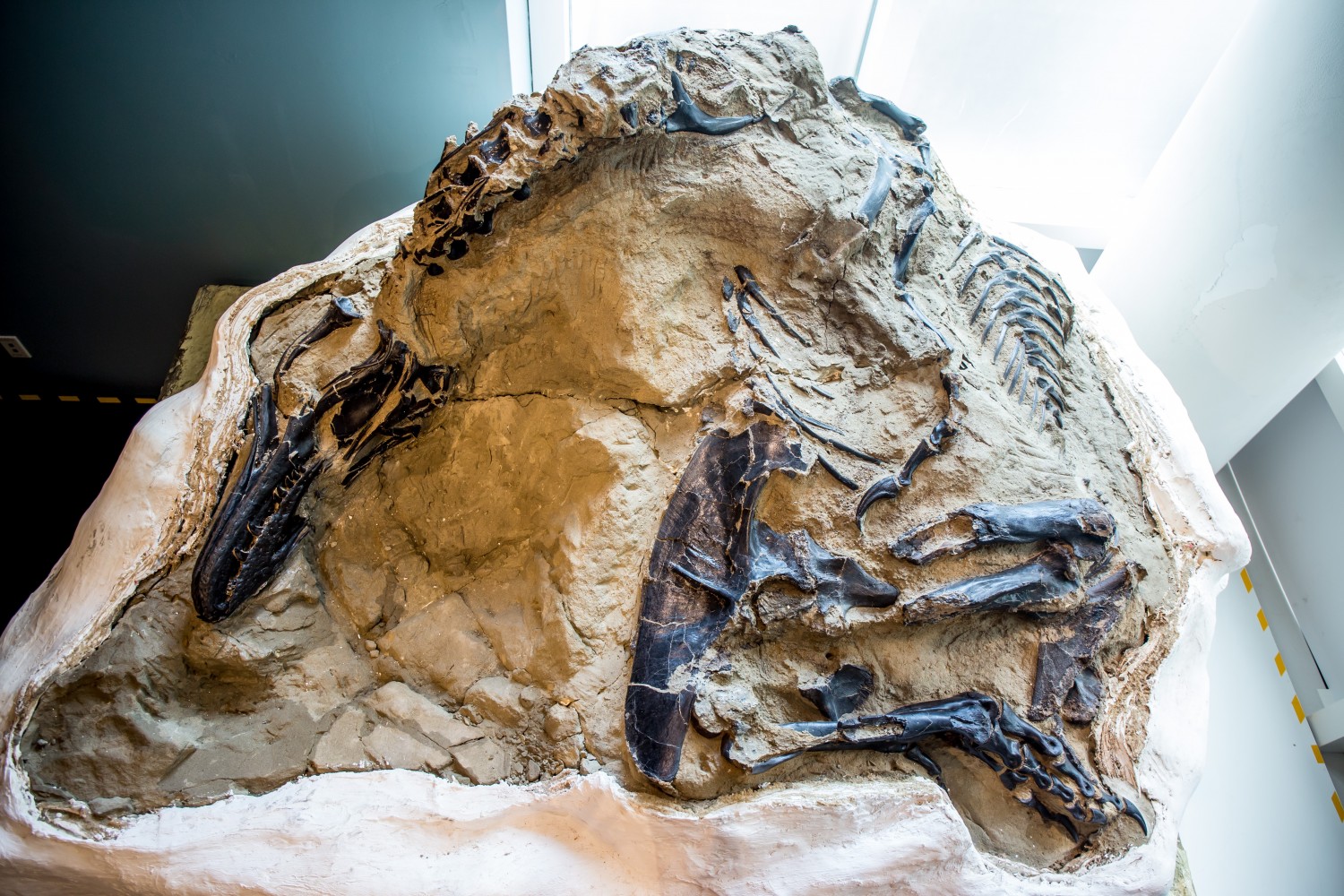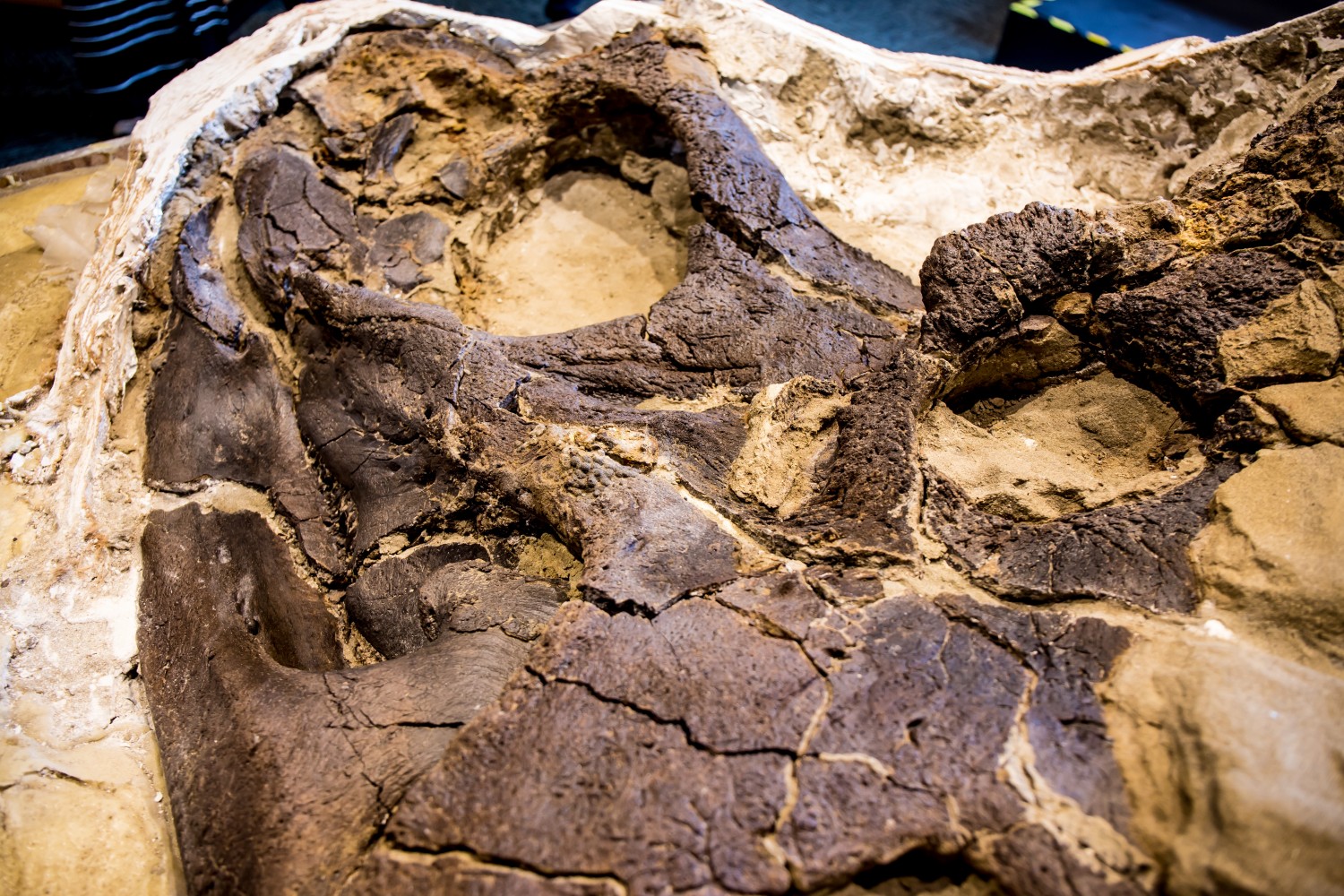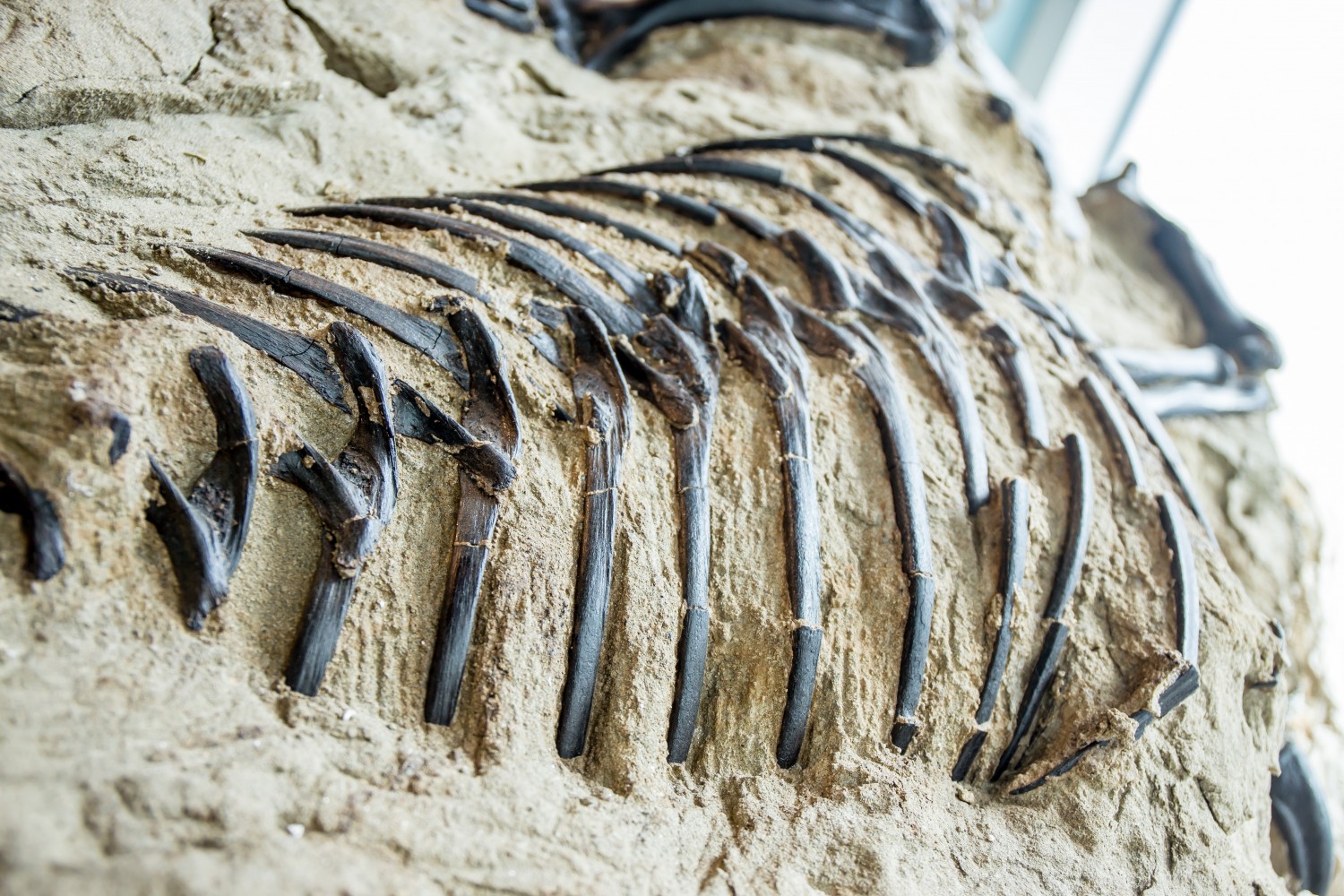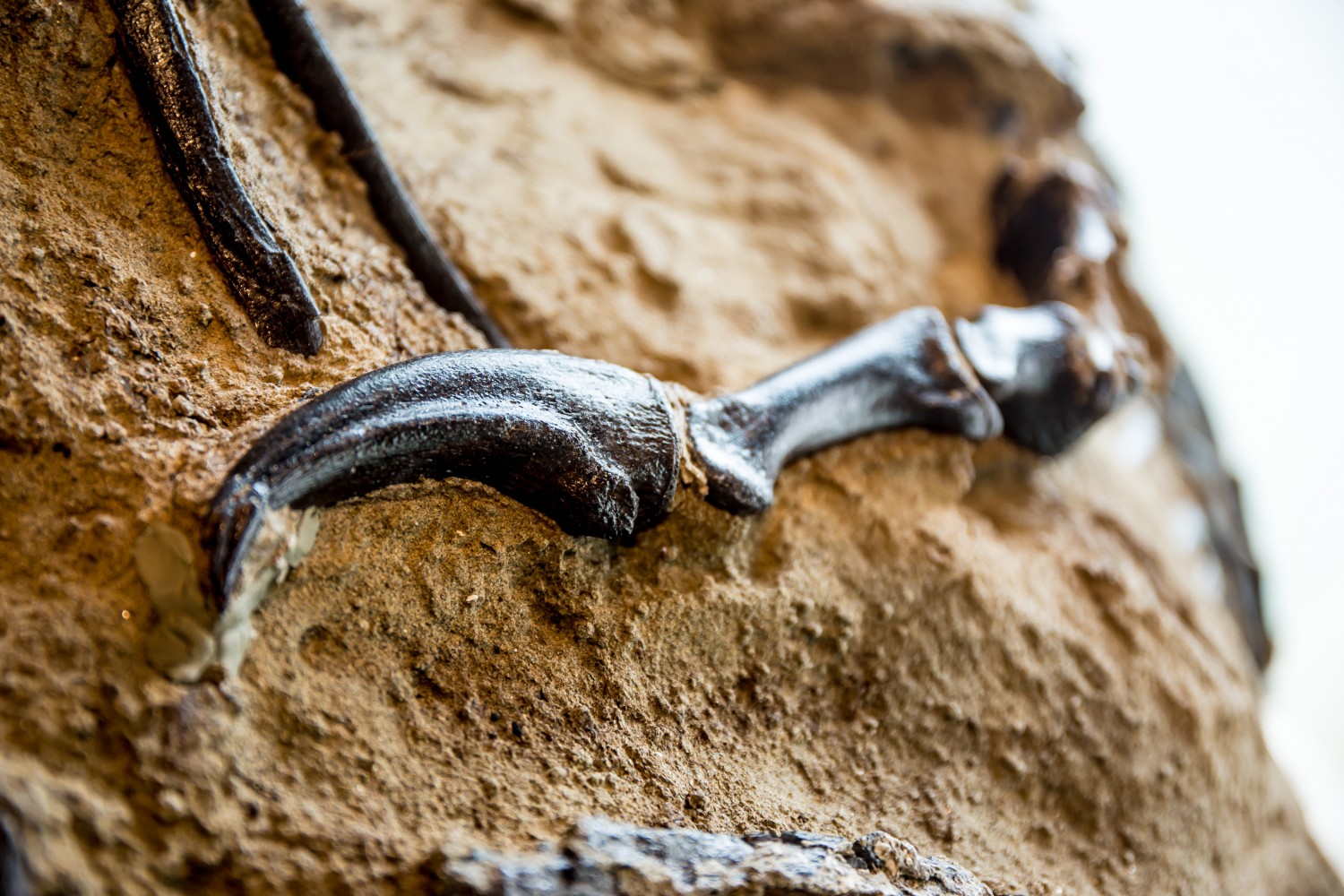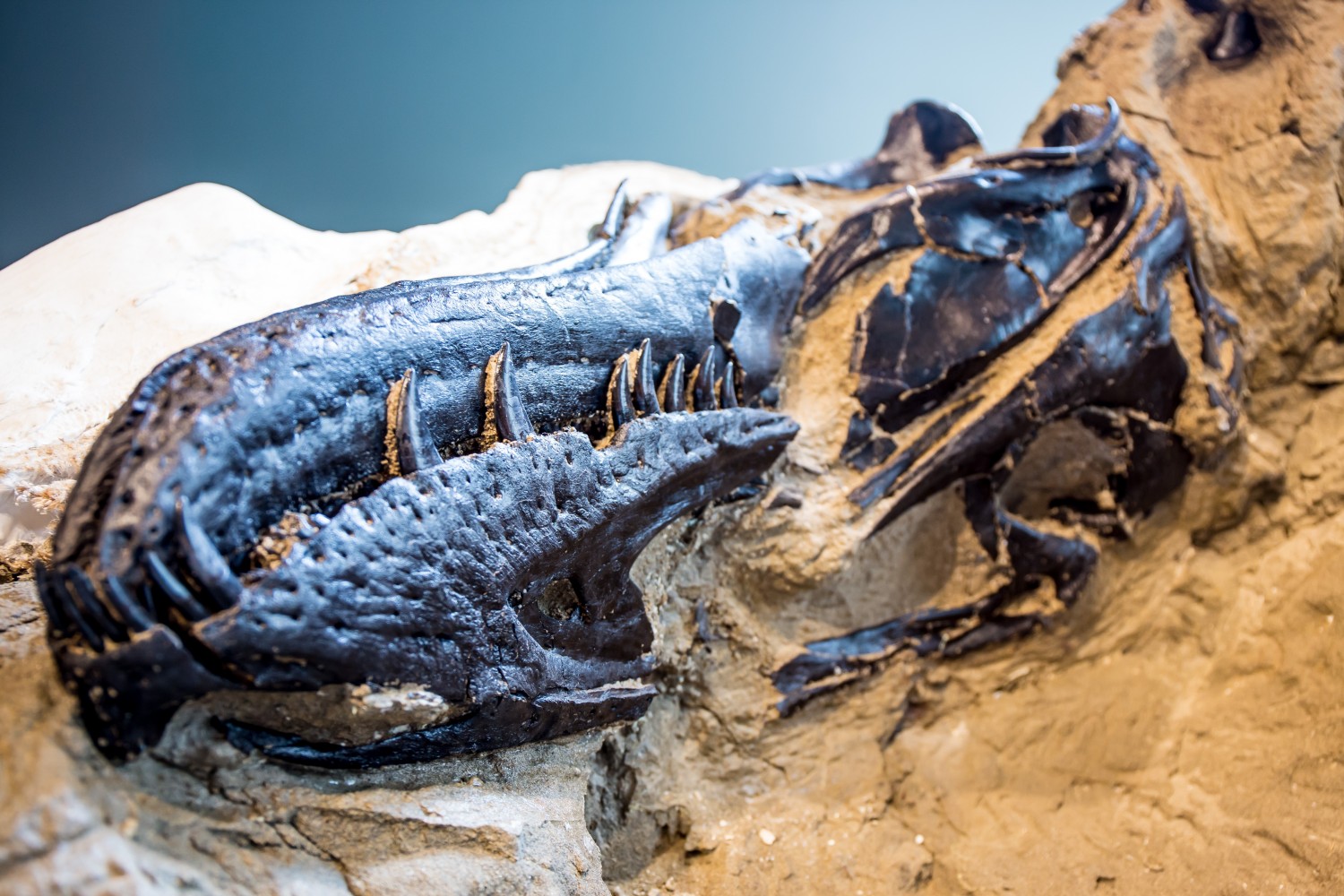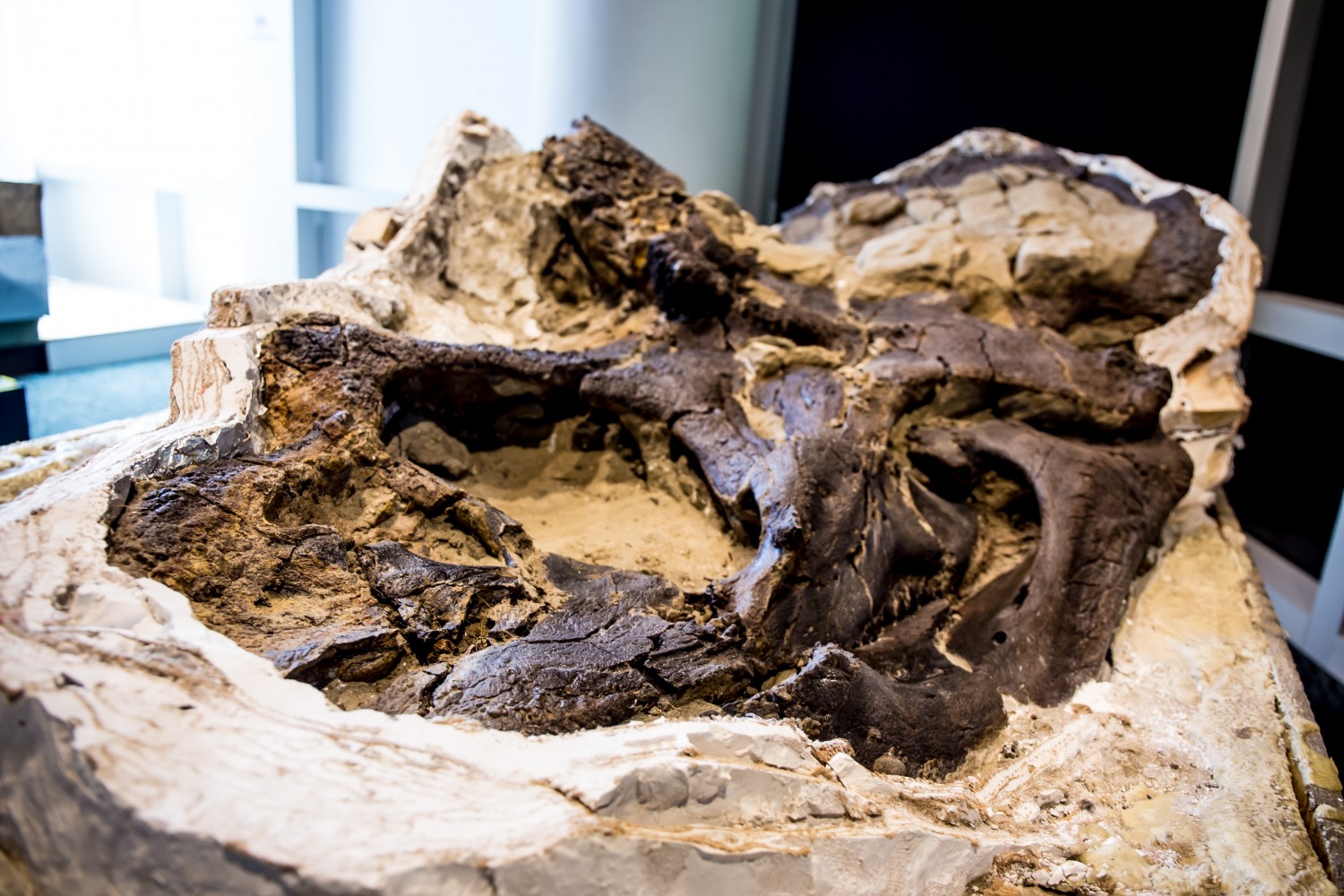Two dinosaurs — a T. rex and a Triceratops — were locked in battle 67 million years ago, unaware that sudden death awaited them both.
Rapidly buried together in a single event, these Dueling Dinosaurs will now benefit scientists and amaze visitors to the N.C. Museum of Natural Sciences.
“The Museum is thrilled to have the unique opportunity to house and research one of the most important paleontological discoveries of our time,” said Dr. Eric Dorfman, director and CEO of the North Carolina Museum of Natural Sciences.
The rare fossilized remains were acquired by the nonprofit Friends of the North Carolina Museum of Natural Sciences and given to the museum. The gift was announced on Tuesday.
“It is an immeasurable honor to welcome these specimens as they take up permanent residence here at the museum,” said Jason Barron, chair of the nonprofit, in a written statement. “Dueling Dinosaurs is a singular find; we are incredibly grateful to our supporters for making this a reality and allowing our visitors – in-person and virtual alike – to experience this journey with us.”
The specimen includes the best-preserved skeletons of Tyrannosaurus rex and Triceratops horridus unearthed to date — including the only complete skeleton of T. rex yet discovered — preserved together in a potential predator-prey encounter. The dinosaur carcasses have not been studied and remain entombed within sediment from the Montana hillside where they were discovered. Because of these rare burial conditions, each bone is in its natural position and museum scientists will have access to biological data that is typically lost in the excavation and preparation processes.
Entombing sediment preserves extraordinary features such as body outlines, skin impressions and other soft tissues, as well as injuries and potential evidence of interaction, such as Tyrannosaur teeth embedded in the Triceratops body. This distinct preservation will provide museum paleontologists with an unprecedented opportunity for research and education as they work to uncover the fossils and learn from them in the years to come.
“We look forward to inviting dinosaur lovers of all ages to experience this awe-inspiring fossil and learn from our talented team of paleontologists as they undertake a one-of-a-kind research project to uncover and analyze them,” said Susi Hamilton, secretary of the N.C. Department of Natural and Cultural Resources.
In conjunction with the fossil acquisition, design is nearing completion on a behind-the-scenes visitor experience at the museum in Raleigh. The exhibit will be the first physical expansion of the museum in a decade and will build on its sustained leadership in public engagement with scientific research.
The renovation will be located on the ground floor of the innovative Nature Research Center and will include high-tech exhibit spaces, an area where visitors can explore the tools and techniques used by paleontologists, and a science laboratory dubbed the SECU DinoLab, where scientists will research the specimens live in front of the public. The facility will also feature video feeds and research updates so the public, both onsite and online, can follow along live as paleontologists work to reveal and share their Dueling Dinosaurs discoveries. Construction of the lab is slated to begin in 2021.
“We have not yet studied this specimen; it is a scientific frontier. The preservation is phenomenal, and we plan to use every technological innovation available to reveal new information on the biology of T. rex and Triceratops. This fossil will forever change our view of the world’s two favorite dinosaurs,” said Dr. Lindsay Zanno, head of paleontology at the N.C. Museum of Natural Sciences and associate research professor at N.C. State University.
The fossils were acquired by the nonprofit organization Friends of the North Carolina Museum of Natural Sciences solely via private funds, and will be gifted to the Museum’s Vertebrate Paleontology Collection. The acquisition and one-of-a-kind experience is made possible thanks to support from the people of North Carolina, the SECU Foundation, an anonymous donor, Bank of America Charitable Foundation, Duke Energy Foundation, North Carolina GlaxoSmithKline Foundation, Wake County and City of Raleigh, The Jandy Ammons Foundation, Delta Dental of North Carolina, Maynard Family Foundation, the PNC Foundation, Wells Fargo Foundation, the Re Corr Family Foundation and others.
For more information, visit duelingdinosaurs.org or naturalsciences.org.



